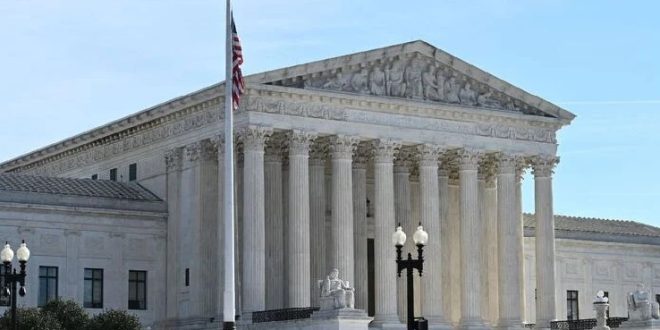24-06-2023
WASHINGTON: In a victory for Joe Biden administration, the United States (US) Supreme Court on Friday upheld the federal government’s right to decide which undocumented migrants should be targeted for deportation.
 In an 8-1 vote, the nation’s highest court ruled that the states of Texas and Louisiana lacked the legal standing to challenge the federal government’s policy.
In an 8-1 vote, the nation’s highest court ruled that the states of Texas and Louisiana lacked the legal standing to challenge the federal government’s policy.
Texas and Louisiana filed suit after the Department of Homeland Security, in September 2021, instructed US Immigration and Customs Enforcement to concentrate expulsion efforts on persons who “pose a threat to national security, public safety, and border security.”
Defending the policy of President Joe Biden’s administration in court, Solicitor General Elizabeth Prelogar said the federal government has to prioritize its efforts because it does not have the resources to pursue the 11 million undocumented “noncitizens” in the country.
Justice Brett Kavanaugh, who wrote the majority opinion, said the states had brought an “extraordinarily unusual lawsuit.”
“They want a federal court to order the Executive Branch to alter its arrest policies so as to make more arrests,” Kavanaugh said. “Federal courts have not traditionally entertained that kind of lawsuit.”
 He said if the court ruled in favor of the states it would lead to “expansive judicial direction of the Department’s arrest policies.”
He said if the court ruled in favor of the states it would lead to “expansive judicial direction of the Department’s arrest policies.”
“We could anticipate complaints in future years about alleged Executive Branch under-enforcement of any similarly worded laws – whether they be drug laws, gun laws, obstruction of justice laws, or the like,” Kavanaugh said.
During oral arguments before the court in November, Texas Solicitor General Judd Stone said prioritizing certain categories of persons for expulsion would impose costs on the state, which shares a border with Mexico and is an entry point for hundreds of thousands of undocumented migrants every year.
“Texas suffers injuries, regardless of what it does, whether it detains, releases or paroles individuals because we have not only law enforcement costs, but social services costs and very serious threats of recidivism,” Stone said. (Int’l Monitoring Desk)
 Pressmediaofindia
Pressmediaofindia




